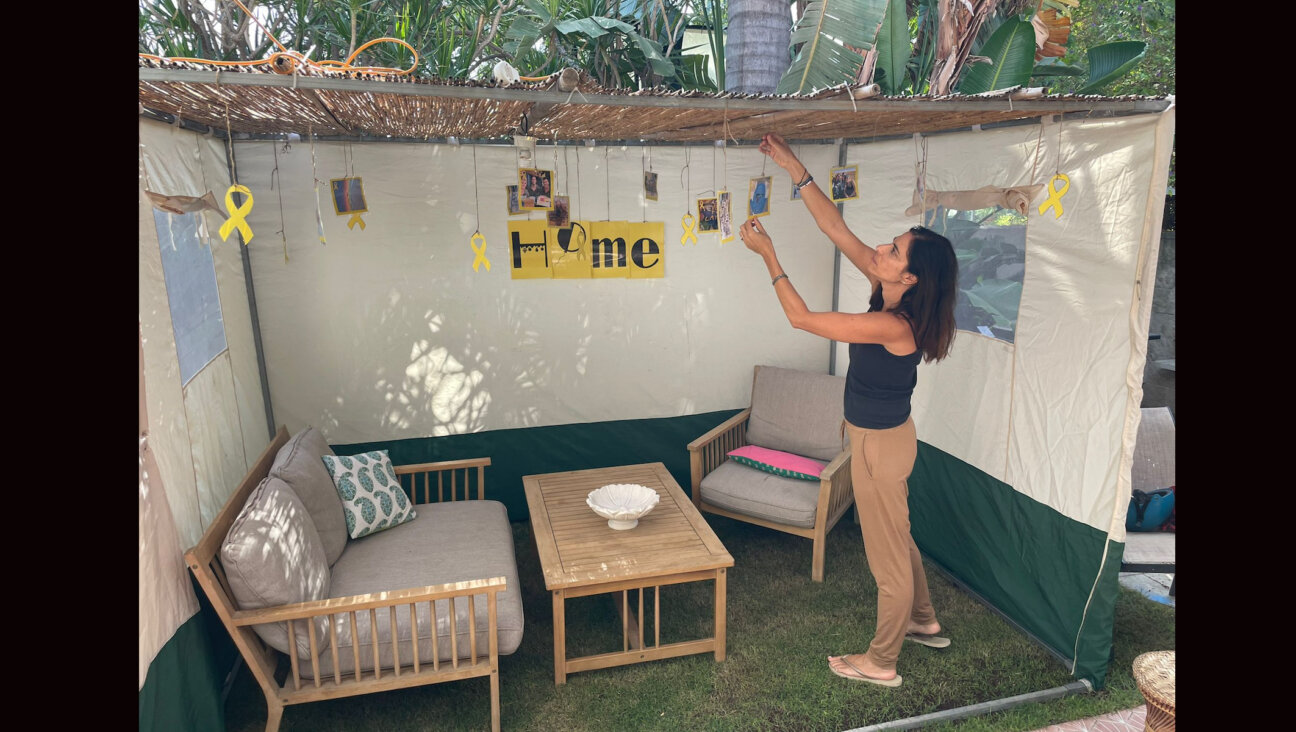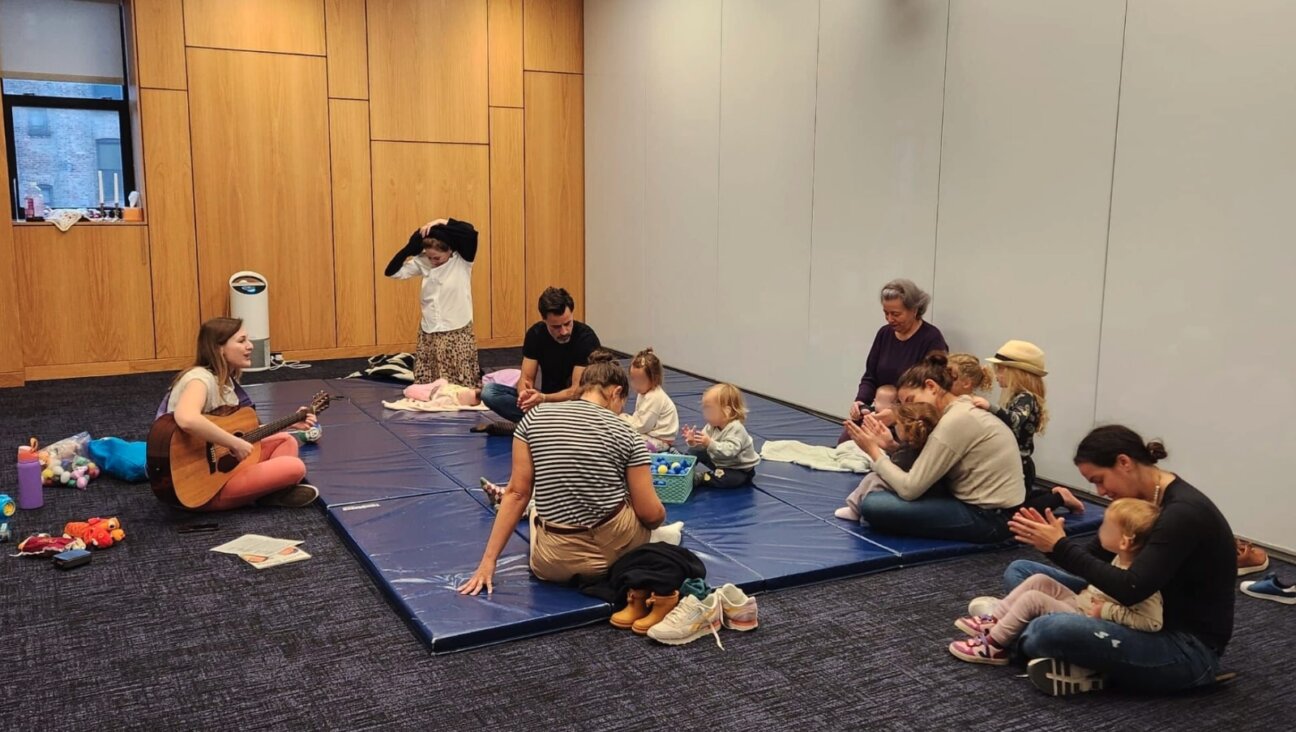With an apology, Germany returns reparations to Holocaust survivor’s kin

Ayelet Gezow with her mother’s memoir, which she wrote in Hebrew. By Louis Keene
A German official has apologized to the daughter of a Holocaust survivor for demanding she return 72.55 euros that the government had mistakenly paid out to her deceased mother after she died in January.
And Germany will return the money — about $80 — to the daughter, who had written a check for the amount after receiving a callously worded letter explaining that her mother, having died, had no right to it.
Ayelet Gezow, whose mother escaped a transport to Auschwitz as a child, explained how disturbing it had been to receive the letter in a Forward story published last week. On Wednesday she received an email apologizing for the pain the attempt to claim 72.55 euros paid in excess had caused her.
“We have checked the facts again and we have come to the conclusion that you have not received the amount,” said Ines Krolik, a German official, in the message, which was written in German. “Should we have offended you with our behavior during the procedure, we are really sorry. Please accept our apologies.”
Krolik added that the pension office is reviewing the language in its standard letters for sensitivity as a result of Gezow’s complaint.
Born in Mannheim, Germany, Amira Gezow had been receiving 72.55 euros per month — in bundled payments that came every three months — as part of a reparations program undertaken by Germany’s pension office for contributions German Holocaust survivors were unable to make due to their persecution. (It was not the only reparations check Gezow received — she also received 580 euros a month from the Claims Conference.)
Get the Forward delivered to your inbox. Sign up here to receive our essential morning briefing of American Jewish news and conversation, the afternoon’s top headlines and best reads, and a weekly letter from our editor-in-chief.
Gezow died of complications of COVID-19 in early January — according to Germany, only two months into a three-month disbursement period. It wanted the last month’s money back.
The coldness of the letter and subsequent terse interactions with the German consulate infuriated Ayelet Gezow, Amira’s youngest daughter, to whom the letter was addressed. How could the German government be so heartless, she wondered, with the family of a survivor. Ayelet Gezow also never met her grandparents, who died in the Holocaust.
And though Ayelet Gezow had never received any payments from the German government herself, she also noted that the money in question wasn’t simply sitting in an account — it had gone to paying for her dying mother’s comfort and medical care.
“All I wanted was for the Germans to acknowledge my mother as a human being,” she told the Forward. “All they needed to say is ‘We are sorry for your loss.’”
Germany had responded that the amount exceeded the maximum it could write off after a person died, and that once reclaimed, the money would go to assisting other survivors.
Krolik’s email seemingly reversed that stance.
Ayelet Gezow was buoyed by the decision. “If I succeeded in preventing pain for any other Holocaust survivors’ families, then it was 72.55 euros well spent,” she said.
A message from our Publisher & CEO Rachel Fishman Feddersen

I hope you appreciated this article. Before you go, I’d like to ask you to please support the Forward’s award-winning, nonprofit journalism so that we can be prepared for whatever news 2025 brings.
At a time when other newsrooms are closing or cutting back, the Forward has removed its paywall and invested additional resources to report on the ground from Israel and around the U.S. on the impact of the war, rising antisemitism and polarized discourse.
Readers like you make it all possible. Support our work by becoming a Forward Member and connect with our journalism and your community.
— Rachel Fishman Feddersen, Publisher and CEO






























